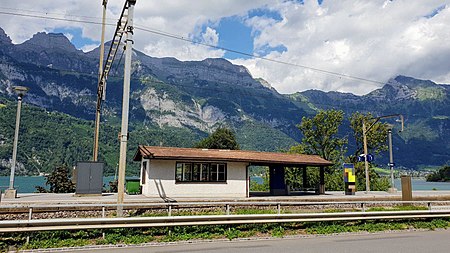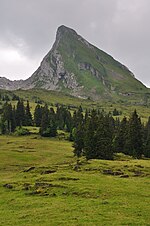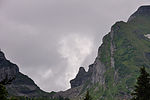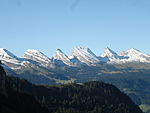Mols railway station
Disused railway stations in SwitzerlandPages with no open date in Infobox stationRailway stations closed in 2021Railway stations in the canton of St. GallenSwiss Federal Railways stations

Mols railway station (German: Bahnhof Mols) is a now disfunct railway station in Quarten, in the Swiss canton of St. Gallen. The station was closed on 12 December 2021, because of ongoing construction work on the Bommerstein tunnel and low ridership. Buses continue to stop at the station.The station used to be an intermediate stop of the former S4 circle line (rerouted in December 2023) on the Ziegelbrücke–Sargans line.
Excerpt from the Wikipedia article Mols railway station (License: CC BY-SA 3.0, Authors, Images).Mols railway station
A3,
Geographical coordinates (GPS) Address Nearby Places Show on map
Geographical coordinates (GPS)
| Latitude | Longitude |
|---|---|
| N 47.11 ° | E 9.2794444444444 ° |
Address
A3
8885
St. Gallen, Switzerland
Open on Google Maps










